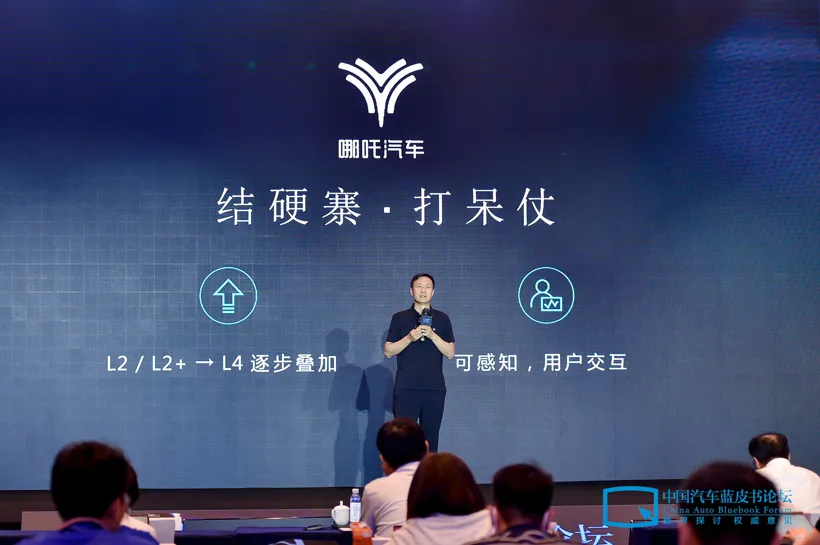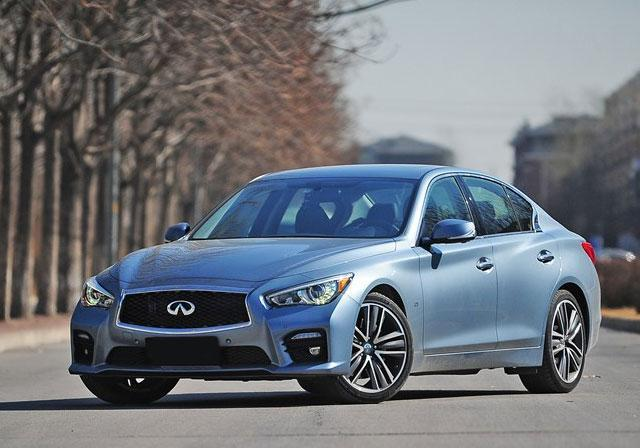Outing One Hundred People’s media, focusing on the evolution of the automobile travel industry chain
Original Roomy
In 2010, Ren Zhengfei asked Luo Yuzhou, who was still a Huawei executive at the time, “Can you become number one in the world?” Luo Yuzhou replied, “This is every employee’s dream.”
According to the general plot, this should have been a moment to inspire employees’ ambitions. However, Ren Zhengfei did not.
“Dreams, without anything practical, are just daydreams.”
Ren Zhengfei believed that the desire for success was the nature of Huawei people. However, he still urged people to stay sober and not to look at others walking on the main road while they themselves were on a side road. Only by starting from the side road could they reach the main road.
This sentence is still applicable to today’s bustling auto industry, and it implies “setting the right direction.”
However, what we want to talk about is “aiming.”
For example, Wang Chuanfu, who loudly declared that “Huawei phones are made by us,” is earnestly persuading the “moneyed” tech giants that making cars also requires aiming.
Money alone cannot make cars
“For example, if someone like Mr. Lei prepares to invest 100 billion, the key is wasting three years of your time. How much is three years’ time worth? It cannot be bought with money. If the strategic direction is wrong, losing 5 billion is not much, but losing three years is very important.”
Some people say that this statement is biased. It has been interpreted as saying that, Lei Jun, you may have money, but making cars is too difficult.
This is a good show of veterans in the auto industry persuading the newcomers in the industry, and it has caused a stir on the internet, causing a fight between Xiaomi fans and Oppo fans.
Netizens felt sorry for Lei Jun and urged him to come out and stand up for himself. His “final battle in life” dream has been shattered.
The host pressed for an answer, asking if he was suggesting that Lei Jun would waste too much time, and Wang Chuanfu waved his hand and denied it, saying that he was emphasizing the cost of time.
“Advising Lei Jun not to make cars is a misunderstanding, and Xiaomi is in talks to cooperate in the auto industry.” Not only does BYD manufacture for Huawei, but it also manufactures for Xiaomi, showing a good relationship.
“Xiaomi’s 100 billion is more important than time.” Netizens started joking and were not polite.
Although they got along well, Wang Chuanfu emphasized once again that the strategic direction was very important and that it was essential to grasp the right direction to avoid taking the wrong path.
Regarding the rush of tech giants to join the auto industry, in addition to Wang Chuanfu, Zhang Yong from NIO also expressed that making cars must require money, but having money does not necessarily mean making good cars.
“Making cars must require money, but having money doesn’t necessarily make a good car. Otherwise, China Bank, PetroChina, and Sinopec should be the ones making cars the most.”
Zhang Yong also emphasized NIO’s goal, “Building a hard fortress, fighting a tough battle,” setting the right direction, investing a certain amount of technology and resources, steadily moving forward and avoiding recklessness.
Zhang Yong’s words can be paired with the remark made by the co-founder of NIO, William Li, and CEO of 360, Zhou Hongyi.
While talking about “making cars is a great impulse of mine,” Zhou Hongyi also says, “whoever has more money will succeed. Banks are the most eligible to build a car.”
Impulses aside, Zhou Hongyi still understands the strengths and weaknesses of 360.
“I advise many internet brothers not to be so greedy and not necessarily to lead. Learn to cooperate.” This doesn’t sound like something Zhou Hongyi would say because it is not sharp enough. Otherwise, people would say he becomes humble.
Whether he has become humble or not, the principle is the same as Wang Chuanfu’s: understanding what he is capable of and what he cannot. In the final analysis, it still depends on “aiming.”
It seems that if he doesn’t release some information quickly, Lei Jun will still be “educated” by his predecessors.
Didi IPO, the road to a trillion yuan is not smooth
When it comes to scouting, Didi is fast, accurate, and merciless. Recently, it formally submitted an IPO application to the US Securities and Exchange Commission, and its stock code is “DIDI.”
Speaking of aiming, we have to go back to 9 years ago. In the winter of 2012, with Beijing’s heavy snow, Cheng Wei, who couldn’t wait for a taxi, was soaked in the rain, intensifying his desire to create a ride-hailing app.
A good story needs some collision to make it sound better. That heavy snow is Cheng Wei’s stimulation. At the beginning of the venture, Cheng Wei wrote the company’s mission for Didi: “Make travel better.” Nine years later, it also appeared in the prospectus.
Apart from being decisive, Cheng Wei also has a bit of literary and artistic temperament. In the early days of Didi, there was Dache, Kuaidi Dache… With fierce competition, Cheng Wei hung a banner in the office, which read “day by day we get closer to our goal.”
Later, competitors disappeared and Didi became the “boss”. Cheng Wei then switched to the word “humility.”
However, whether it is decisive or literary, Cheng Wei’s dream is that Didi must go global.
Now that the boots are on the ground, how much is Didi worth? According to reports, Didi’s IPO valuation could reach $100 billion.
At this valuation, Didi’s IPO will be the largest in the US by a Chinese company since Alibaba raised $25 billion in its IPO in 2014.
According to the prospectus, Didi has 493 million global active users, an average of 41 million daily transactions worldwide, and total platform transactions of 341 billion RMB.
In three years, the total income of platform drivers is about 600 billion RMB. With a larger user base and higher activity, this is one of Didi’s biggest trumps in terms of market value compared to Uber.
 “After going public, the first thing to do is to acquire Uber. ” Well, the netizens’ minds are even wilder than Cheng Wei’s.
“After going public, the first thing to do is to acquire Uber. ” Well, the netizens’ minds are even wilder than Cheng Wei’s.
After all, Didi has been in a loss state for three years in a row until the first quarter of this year, when it turned losses into gains and achieved a net income of 5.5 billion yuan, more than 8 years since its launch in 2012.
Although the amount of fundraising and the proportion of shares sold were not disclosed this time, the prospectus stated that “about 30% of the funds raised will be used to enhance technological capabilities, including shared travel, electric vehicles, and autonomous driving.”
Didi has never stopped exploring “making cars.” Does this mean that Didi will participate in it like Huawei and Baidu?
This round of exploration was planted three years ago – Hongliu Alliance, of which BYD is one of the members, jointly developed the D1 model for travel scenarios, and there are currently 1,000 vehicles in operation.
However, Didi, who is about to have a lot of money, is still only “dabbling” in electric vehicles. The electric vehicle business is not deep enough, and the road to a trillion is by no means smooth.
Did NIO Win by Chance? Is Hefei’s Success Not Luck?
NIO and Hefei can be regarded as a model of dual success.
If Shanghai has Tesla and has advantages that other cities cannot match, then Hefei’s acquisition of NIO was once interpreted as “winning the bet.”
Recently, Yu Aihua, the secretary of the Hefei Municipal Party Committee, said that Hefei is not “gambling,” but “striving.” Gambling is based on luck, and striving is based on skills.
NIO met the Hefei government and was called “a match made in heaven between a fine horse and a good horse”, with skills in place.
Li Bin said at the 13th China Automotive Blue Book Forum that Hefei was the 19th city we looked at. The previous 18 cities were useless, and we finally found a home in Hefei.
In April 2020, the Hefei Municipal Government invested 7 billion yuan in NIO, pulling it back from the brink of bankruptcy. “Hefei has a ‘life-saving grace’ for NIO. At our most difficult time, they extended a helping hand and rescued us from the ‘intensive care unit.'”
“Hefei is very visionary and invested in NIO at the most critical moment.” Li Bin praised Hefei without hesitation. Hefei, who shared difficulties with Li Bin, also made a lot of money as NIO’s market value soared.
“Six months later, we gave them a lot of money back, which is also an interesting thing.”
When asked how much money was earned by investing in NIO, Secretary Yu Aihua smiled and remained silent, with laughter lingering, indicating everything. He stated that investment income would continue to be used to support the intelligent electric vehicle industrial chain.”This year and more, we have created a miracle together. We hope to further deepen this miracle.” Currently, NIO’s second factory located in Hefei Xinqiao Intelligent Electric Vehicle Industrial Park has officially started construction and is expected to start production in the third quarter of next year.
Now, NIO and Hefei, which are targeting each other, have entered a healthy cycle.
Less than 200 kilometers away in Nanjing, should we learn from Hefei, how to recognize a good horse and be a good talent scout? Don’t be fooled by those so-called “dreamers.” It’s not about how much money you have, you can build a car.
After all, as Ren Zhengfei said, “Dreams are just fantasies without real substance”. “
This article is a translation by ChatGPT of a Chinese report from 42HOW. If you have any questions about it, please email bd@42how.com.
